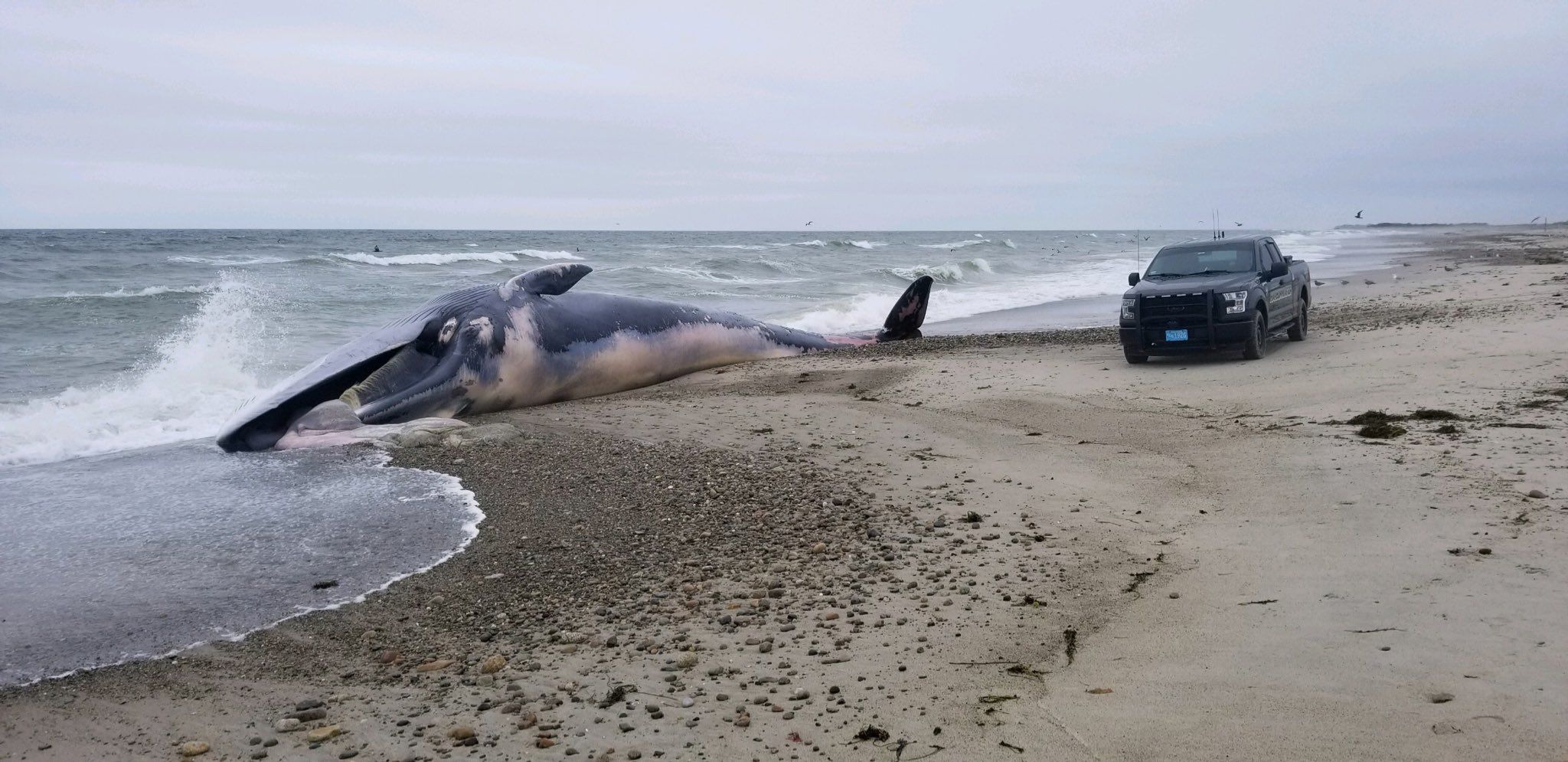
Marine biologists are investigating the death of a huge whale, measuring approximately 55 feet in length, that washed up on Duxbury Beach, Massachusetts, on Monday morning.
Tony LaCasse, a spokesman from the New England Aquarium (NEA), whose researchers are leading the investigations, identified the whale as a finback—the second largest mammal species on Earth after the blue whale.
So far, the scientists have taken basic measurements and conducted an external examination of the animal, LaCasse told the Boston Herald. However, no signs of any trauma from potential ship strikes or entanglement in fishing equipment have been found, indicating that it could have died naturally.
"In the last report, there didn't appear to be any evidence [of being struck] but we have to look at the whole carcass," LaCasse told the Herald. "This guy is 55 feet long, so it's a big animal."
The biologists plan to roll the whale over with heavy-duty equipment to further examine its underside, before towing the carcass up to a high point on the beach where a full necropsy will be conducted, out of the reach of high tides. Tissue samples will be taken from the whale's body—which will be sent for lab testing—before it is buried at the site.
"That's the most common way we dispose of whale carcasses. Duxbury beach is pretty large," LaCasse said.
It could take two or three weeks, or possibly even months, before researchers conducting the lab tests will be able to definitively conclude how the whale died. For the time being, the Duxbury Police Department have asked the public to avoid the area.
"Please stay away so Marine Biologists and Duxbury officials tend to the matter," the police department tweeted.
Finback whales, or fin whales, are found in deep, offshore waters in the major oceans, primarily in temperate to polar latitudes, according to the National Oceanic and Atmospheric Administration (NOAA).
The whales are often referred to as the "greyhounds of the sea" due to their slender bodies and ability to swim at speeds of more than 20 miles per hour. They usually grow to between 75 and 85 feet in length, can weigh as much as 80 tons and may live to 90 years of age.
Aside from vessel strikes and being entangled in fishing gear, the whales face other threats including a lack of prey due to overfishing and ocean "noise," which interrupts their normal behavior and drives them away from areas that are important to their survival.
In fact, there is some evidence to suggest that intense underwater sounds can cause some whales to become stranded and ultimately die.
Like all large whales, finbacks suffered widespread hunting at the hands of commercial whalers during the 20th century, dramatically lowering their population.
While most countries ceased the practice in the 1970s and 1980s (a handful still continue to hunt them), finbacks are considered to be in danger of extinction throughout all or much of their range, according to the NOAA.
Uncommon Knowledge
Newsweek is committed to challenging conventional wisdom and finding connections in the search for common ground.
Newsweek is committed to challenging conventional wisdom and finding connections in the search for common ground.
About the writer
Aristos is a Newsweek science reporter with the London, U.K., bureau. He reports on science and health topics, including; animal, ... Read more
To read how Newsweek uses AI as a newsroom tool, Click here.








